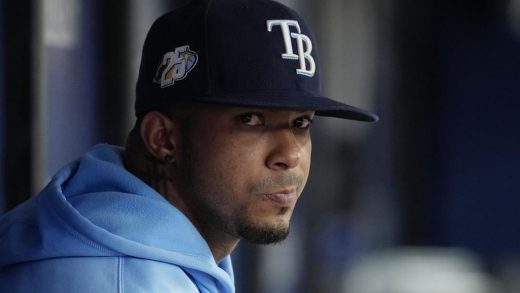
The number of caregivers receiving a benefit to help them raise someone else’s child outside the state care system has risen by 50% in just over a decade.
In 2010, 8706 people were getting the Orphan’s or Unsupported Child’s Benefit. In 2022, that figure was 13,209.
Over the same period, the total yearly cost of these benefits more than doubled, from $2,022,671 to $5,512,463.
However, advocacy groups say many whānau receiving these benefits are turning to foodbanks and donations as they struggle to make ends meet. They fear children are going without as a result.
Photographee.eu
Advocates say the Orphan’s and Unsupported Child’s Benefit doesn’t cover the costs of raising a child. (File photo)
People who look after a child whose parents have died, are missing or are unable to look after them because of a serious long-term health condition or incapacity are eligible for the Orphan’s Benefit.
Meanwhile, those caring for a child because of a family breakdown can get the Unsupported Child’s Benefit.
The weekly payments depend on the child’s age, but match the Foster Carer Allowance for Oranga Tamariki caregivers. The maximum is $317.82 for a teenager 14 or older.
Grandparents Raising Grandchildren chief executive Kate Bundle said the push to keep children unable to live with their parents in their wider whānau had led to about 20,000 children being placed in informal arrangements instead of state care.
“There’s pluses and minuses to that. There’s quite a few real stress points that we see for caregivers.”
Supplied
Kate Bundle, chief executive of the Grandparents Raising Grandchildren, says the organisation’s members miss out on many of the supports formal foster carers get.
Last year, only 44% of caregivers the charitable trust surveyed said the children they cared for had enough clothing, a drop of 10 percentage points from 2021.
Just 22% said they had access to nutritious meals.
Bundle said the gap between the financial support foster carers and informal kin carers were entitled to had narrowed with policy changes in the past decade, but grandparents raising grandchildren still didn’t get money for things like uniforms, school camps and dental bills, which foster carers received.
That meant children supported by the Orphan’s Benefit or the Unsupported Child’s Benefit who had experienced similar traumas to those in OT custody were worse off.
She was also concerned about how clothing allowances were distributed. Although they were paid at the same rate, foster carers got lump sums, while those receiving the other benefits were drip fed the money weekly, leading to it often being swallowed up by other costs.
dianna thomson/Stuff
Linda Surtees, chief executive of Caring Families Aotearoa, says informal whanau carers need more support to achieve equity with foster carers through the state care system.
Linda Surtees, chief executive of Caring Families Aotearoa, agreed inequities between the support OT and informal caregivers received persisted.
“We kind of have two parallel systems. There’s stark, stark differences.”
OT’s deputy chief executive service delivery, Rachel Leota, said in a statement that the agency was working with partner organisations to reform support for caregivers outside the state care system.
Different legislation covered what financial help caregivers were entitled to. The Oranga Tamariki Act states payments would be made to foster carers to “meet the reasonable needs” of the child. Entitlements for UCB and OB recipients, under the Social Security Act, were limited to “the cost of caring for the child”.
Currently, those receiving the OB or UCB could get clothing, birth and holiday allowances, a $350 one-off payment to help with the costs of the child’s arrival in the home, an annual payment for school-related costs, a standard payment for small items for the child, and a payment for children who require nappies.
The total cost of the benefits had gone up as many of those extra payments had been introduced since 2018, and the base rates of the benefits were increased each year to reflect inflation, Leota said.
Caregivers could also apply for up to $2000 per year for children experiencing difficulties or showing promise through the Extraordinary Care Fund and those who were eligible could get the Child Disability Allowance and/or Disability Allowance.
Julia Bergman, general manager of disability, seniors and international policy at the Ministry of Social Development, said in a statement that changing how the clothing allowance was distributed would require a legislative change.


